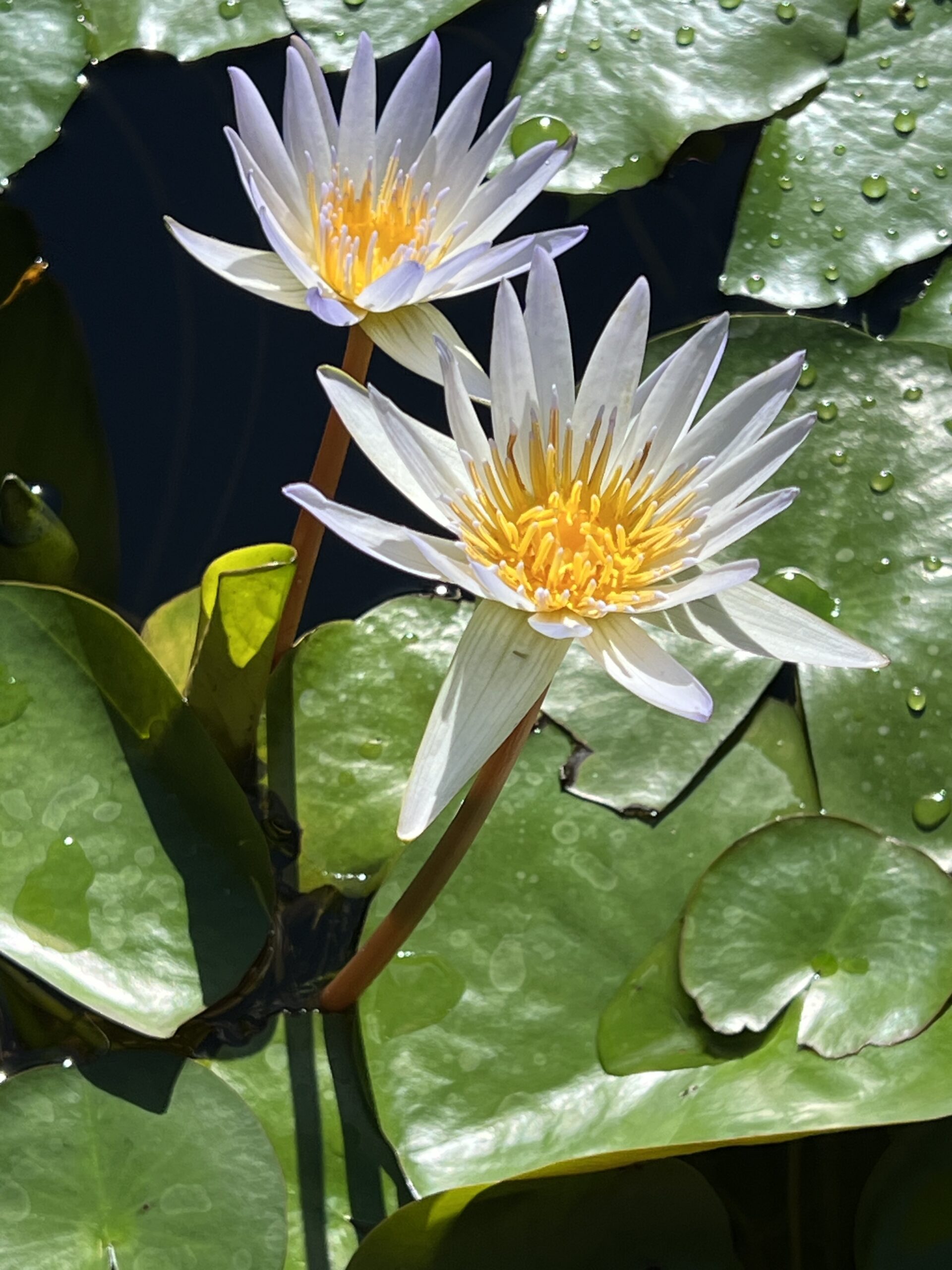“Don’t sweat the small stuff. And it’s all small stuff.” (Richard Carlson)
Years ago, a mother’s helper taught our grandchildren a game called “Rose; Thorn; Bud”. (She also taught them how to do the “Fork Wave”, but I’ll save that for another day.) The “rose” represents something you want to savour about your day. The “bud” represents something you learned, and the “thorn” stands for something that you would prefer not to have happened. I like to think of the thorn as something that made me dig a little deeper, as actual thorns or slivers often do, perhaps to discover a bud — aka learn something — if not find a silver (or rose-y) lining.
On family holidays we often play this game at the dinner table — with everyone participating — which gives us all a snapshot of each other’s day. Occasionally during the day I’d overhear one of the grandchildren say: “This is my rose.. “(thorn, or bud, depending on what’s happening in the moment) as if to remind themselves of what they would later share at the table.
I thought of that game earlier today, on a boat ride with a few somewhat overactive grandchildren. To put it mildly. The word “thorn” came to mind as I witnessed their juvenile antics, (also “wine”, “beer” and “Prozac”) so that, as soon as we docked, I promptly drove home to collect my thoughts and write about not sweating (I typo-ed “swearing”) the small stuff!
But at the same time, I was reminded of a comment my eldest grand-daughter made when I asked her to suggest a topic for this week’s blog. She had just seen a film in which the protagonist was re-living the same day over and over again (surprisingly, it wasn’t Groundhog Day — one of my favorites) until he or she learned to appreciate the small things in life. Her suggestion was to write about paying better attention to the small things. Coming from a fifteen-year-old who lives with some of those excitable tykes, this struck me as the perfect occasion to take her advice. There was so much more to savor on that boat ride besides the clamour of four boisterous youngsters.
The choppy ripples of the sage-green lake spangled with sunshine too bright for my eyes. The extravagant plume of water spraying up behind a speeding jet-ski. A cloudless French-blue sky crisscrossed with helicopters and float plane traffic. The undulating fringe of evergreen trees skirting the gray shale and dirty snow of Armchair glacier. Even the gassy smell of exhaust as we slowed the boat through the no-wake zone was redolent of so many summer days spent on or by the lake, any lake. Soaking in all these sights and sounds; alternately feeling the stiff breeze on the water and the still heat of the dock; enjoying all the sensations that will fade in a couple of months; accepting all the pluses and minuses of a well-spent summer.
In no time I had forgotten the irritations of the boat ride and was plunging into preparations for a big family dinner. Something I take great satisfaction in, despite the chaotic way it is consumed at the table. The advice to appreciate the small things compelled me to pay closer attention to the dinner setting; a centerpiece of pedestal candles alternating with random bits of greenery from the garden, arranged in an odd assortment of small vases, made the table eccentrically festive.
The important priority, as it has always been, was gathering and “breaking bread” with the family. A second priority has run parallel with the first, and is that of tracking my footprints in what I call leading an examined life. In fact, the point of the latter has been to better relate with the former. To lead by example. To establish a spiritual practice and gather tools like the rose-thorn-bud game, that better enable me to deal with the everyday challenges of life in family and community.
With respect, then, for family and community, it behooves me to set standards and expectations about how I want to behave, decide what kind of person I want to be, what sort of legacy I want to leave. More often than not, it is in the small things that I most practice what I preach. Because, as Richard Carlson would say, most of my time is taken up with the small stuff. But that small stuff gradually adds up to a sort of living legacy, one that will testify to the integrity of my beliefs.
In a book called “What Does It Mean to be Human” (Franck, Roze, Connolly), Arthur Lang, a noted sociologist and author, shares his belief in leading an examined life: “To live is to write one’s credo, every day, in every act. I pray for a world that offers us each the gift of reflective space, the Sabbath quiet, to recollect the fragments of our days and acts. In these recollections we may see a little of how our lives affect others and then imagine, in the days ahead, how we might do small and specific acts that create a world we believe every person has a right to deserve.”
After all, to quote from the Best Exotic Marigold Hotel, “Everything will be alright in the end, and if it’s not all right, it’s not yet the end.”
(Except in this case, which is the end of this blog on not sweating, but actually savoring the small things…)
